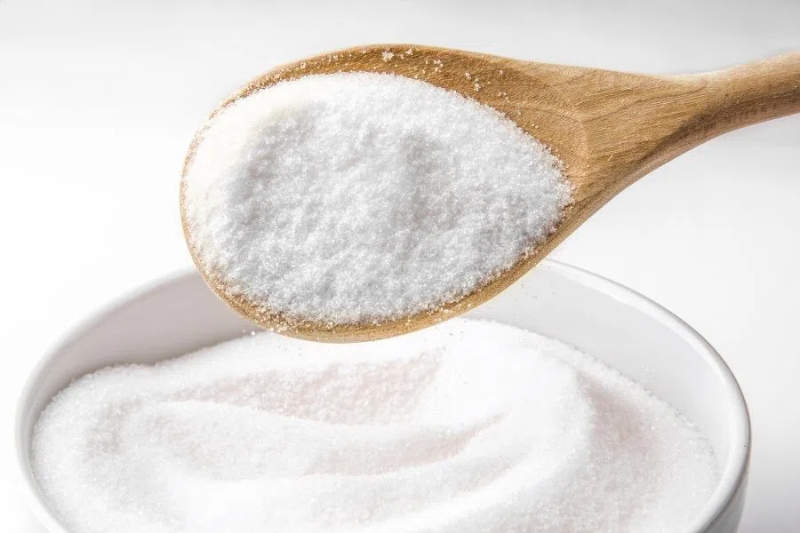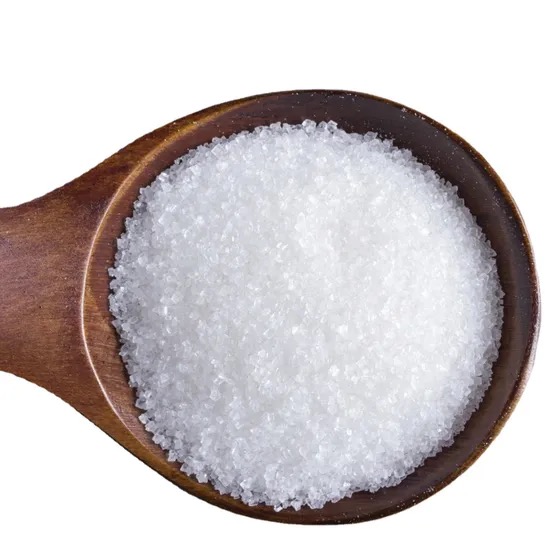Views: 222 Author: Sara Publish Time: 2025-10-29 Origin: Site








Content Menu
● Overview of Maltitol and Its Applications
● Argentina: Market Presence and Key Players
● Global Players with Argentina Reach
● Sourcing and Collaboration: China-Argentina-Global Nexus
● Quality, Certification, and Safety Considerations
● Sustainability, Logistics, and Market Access
● FAQ
>> 1. What is maltitol and why is it used in food and pharma products?
>> 2. Which formats of maltitol are available from manufacturers?
>> 3. How can a China-based OEM/ODM partner help with maltitol projects?
>> 4. What certifications should be sought when sourcing maltitol?
>> 5. How does maltitol compare to other sugar substitutes in confectionery?
In the evolving landscape of In the food and beverage industry, as well as in the field of health solutions, Maltitol has become one of the important sugar alcohol alternatives worldwide due to its excellent taste, low calories and minimal impact on blood sugar.For enterprises dedicated to providing mixed sweetener development, tablet production and OEM/ODM services for foreign manufacturers, understanding the Maltitol manufacturer and supplier network in the Argentine market and how to achieve seamless integration in the global supply chain is of great practical significance.This article systematically reviews representative manufacturers and major suppliers in Argentina and its surrounding areas, analyzes the entire chain from raw material sources, processing forms, quality certifications to final applications, and at the same time explores the collaboration model of a Chinese base factory in the fields of natural sweeteners, functional polyols and dietary fiber.How to provide international brands with mixed sweetener development, tablet production and OEM/ODM services, helping customers achieve faster market entry and a stable supply chain.

Maltitol is a sugar alcohol derived from starch through hydrogenation, offering sweetness close to sucrose but with reduced caloric content and a more favorable glycemic profile. Its versatility spans hard candies, chocolates, baked goods, chewing gums, ice creams, dairy beverages, and pharmaceutical syrups, where it contributes bulk, texture, and moisture retention. Beyond sweetness, maltitol lends functional benefits such as humectancy, controlled browning, and improved shelf stability—qualities that are highly valued in confectionery, bakery, dairy, and pharma formulations. Given growing demand for reduced-sugar options with clean label potential, maltitol is frequently blended with other polyols or natural sweeteners to tailor taste profiles while meeting regulatory and labeling requirements. The cumulative effect is a robust platform for global manufacturers seeking scalable, compliant maltitol solutions.[11][12]
Argentina's role in the maltitol supply chain blends regional formulation capacities with imported supply from major global producers. Local distributors and food manufacturers often collaborate with international maltitol producers to ensure consistent supply, rigorous quality control, and adherence to food-grade standards. The Argentine market emphasizes diverse product formats—maltitol powder, syrup, and tablets—alongside blended sweeteners to meet specific confectionery, bakery, or pharmaceutical needs. Certificatory programs such as ISO, HACCP, and GMP frequently feature in supplier qualifications, signaling a commitment to safety and traceability. Argentina's market dynamics are further shaped by regional trade agreements, currency considerations, and evolving regulatory frameworks that govern food additives and excipients. Strategic partnerships with multinational suppliers enable Argentine brands to access stable supply chains while maintaining compliance across Latin America.[13][14]
Several global maltitol producers and distributors maintain active channels into Argentina, reflecting the country's growing demand for low-sugar product innovations. Key strengths to evaluate when engaging these suppliers include product grade (food-grade vs pharmaceutical-grade), purity, moisture content, particle size, and packaging options. Reputable suppliers provide technical dossiers, COAs, and regulatory support, enabling early-stage formulation work and scale-up. In addition, regional distributors often offer logistical flexibility, sample access, and local regulatory guidance to support market-entry strategies. By leveraging global maltitol supply networks, Argentine manufacturers can secure reliable inputs for confectionery, bakery, dairy, and pharma applications while meeting regional taste preferences and regulatory requirements.[15][16]
For overseas brands, engaging with a China-based facility that specializes in natural sweeteners, functional polyols, and dietary fibers offers compelling advantages. Such a partner can deliver end-to-end capabilities that complement maltitol supply:
- Blended-sweetener development: Tailor sweetness intensity, mouthfeel, and aftertaste through strategically engineered blends that align with regional preferences and regulatory constraints.
- Tablet production: Develop maltitol-containing solid dosage forms with appropriate binders and excipients to ensure mechanical integrity and controlled release, if applicable.
- OEM/ODM services: Scale manufacturing, QA, and packaging to meet international standards, with flexibility in MOQs and lead times.
- Regulatory and technical support: Access to global regulatory knowledge, stability testing programs, and product safety data to facilitate market entry in multiple jurisdictions, including Argentina and broader Latin America.
This integrated approach enhances supply chain resilience, reduces development timelines, and supports consistent product performance across markets.[13][15]

Quality and safety remain foundational in maltitol supply. International safety evaluations recognize maltitol as safe within established usage levels, with many markets requiring specific certifications and documentation. When selecting a maltitol supplier for Argentina-bound or Latin American products, buyers should pursue:
- Detailed product specifications: purity, moisture, particle size, and stability under anticipated processing conditions.
- Certificates of analysis and third-party test results confirming compliance with relevant food and pharma standards.
- Stability data and recommended storage conditions to ensure shelf life across varying climates.
- Documentation supporting regulatory approvals in target markets (EU, US, Argentina, etc.).
- Packaging options designed to minimize moisture uptake during transport and storage.
A China-based OEM/ODM partner with robust quality management systems can help standardize maltitol and related ingredients across batches, ensuring consistency and traceability.[17][13]
- Maltitol powder: Fine, spray-dried or agglomerated forms suitable for confectionery fillings, chocolates, biscuits, and bakery applications.
- Maltitol syrup: Used to impart texture and sweetness in syrups, candies, and moist bakery products.
- Maltitol tablets: For chewable products and pharmaceutical excipients, often requiring precise binding and disintegration characteristics.
- Blends and maltitol-based sweeteners: Custom formulations combining maltitol with other polyols or natural sweeteners to achieve precise sweetness levels and functional performance.
Choosing the right format depends on end-use, processing conditions, ingredient compatibility, and equipment capabilities. A knowledgeable partner can assist in selecting grades and packaging configurations that maximize performance and cost-efficiency.[18][15][17]
- Confectionery: Maltitol's bulk and texture closely mimic sugar, enabling reduced-sugar candies, chocolates, and gums with desirable melt and mouthfeel characteristics.
- Baked goods: In bread and pastry formulations, maltitol contributes partial sweetness with controlled browning and moisture retention, particularly when employed in blends with other polyols.
- Dairy and beverages: Hygroscopic properties help maintain moisture and creamy mouthfeel in dairy desserts, yogurts, and functional beverages requiring sugar reduction.
- Pharmaceuticals: As an excipient in syrups and tablets, maltitol balances sweetness with stability and compatibility with active ingredients, supporting patient-friendly formulations.
These use cases demonstrate maltitol's versatility across sectors, reinforcing its role as a strategic input for international manufacturers seeking scalable, compliant formulations.[16][15][17]
Sustainability considerations increasingly influence raw-material sourcing, processing efficiency, and packaging design in maltitol supply chains. Scalable production, efficient energy use, and waste management practices contribute to lower environmental footprints, meeting procurement standards of global brands. Logistics strategies emphasize climate-resilient transport, moisture-controlled containers, and efficient import-export documentation to minimize delays and ensure product integrity. Access to Argentina's market through regional distributors and direct imports from global producers enables brands to align pricing with regional demand, diversify supplier bases, and mitigate supply disruptions. A well-coordinated supply network—incorporating a China-based partner for value-added services and a stable set of maltitol suppliers—can deliver end-to-end value from formulation to finished product.[1][2]
Maltitol remains a cornerstone ingredient for global manufacturers pursuing reduced-sugar solutions without compromising taste, texture, or stability. Argentina's market continues to evolve, supported by a mix of domestic distributors and international producers who bring reliable inputs, technical expertise, and regulatory clarity. For overseas brands and contract manufacturers, partnering with a China-based facility that specializes in natural sweeteners, functional polyols, and dietary fiber—offering blended-sweetener development, tablet production, and OEM/ODM services—can accelerate product development, ensure batch-to-batch consistency, and expand access to international markets. By leveraging a well-balanced network of maltitol manufacturers and suppliers in Argentina and across Latin America, brands can deliver compliant, scalable maltitol-based products to diverse consumer bases while maintaining a strong competitive edge.[16][13][15]

Maltitol is a sugar alcohol that provides sweetness close to sugar with fewer calories and a lower impact on blood glucose, making it popular in sugar-reduced foods, chocolates, baked goods, and pharmaceutical syrups. It also offers functional properties like moisture retention and texture enhancement, which support product quality in various formulations.[13][15]
Formats typically include maltitol powder, maltitol syrup, and maltitol tablets, as well as blended sweeteners that combine maltitol with other polyols or natural sweeteners to achieve target sweetness and functional performance.[17][15]
A China-based partner can provide blended-sweetener development, tablet production, and end-to-end OEM/ODM services, along with regulatory support and quality management systems to ensure consistent product quality for international markets.[15][13]
Key certifications include ISO 9001, HACCP, FSSC 22000, Kosher, and Halal, plus regulatory approvals where required (EU, US, Argentina, etc.). Suppliers should provide COAs and third-party testing results.[17][13]
Maltitol offers a balance of sweetness and bulk similar to sugar, with better caloric efficiency and stable texture in many confectionery applications, and it can be used in combination with other polyols or natural sweeteners to tailor taste profiles and regulatory compliance.[16][15]
[1](https://www.mordorintelligence.com/market-analysis/sweeteners/argentina)
[2](https://www.mordorintelligence.com/industry-reports/argentina-food-sweetener-market-industry)
[3](https://www.linkedin.com/pulse/latin-america-maltitol-sweetener-market-size-strategy-r9z9e)
[4](https://www.databridgemarketresearch.com/reports/global-maltitol-market)
[5](https://www.marketreportanalytics.com/reports/maltitol-liquid-261304)
[6](https://www.marketdataforecast.com/market-reports/maltitol-market)
[7](https://www.verifiedmarketresearch.com/product/maltitol-market/)
[8](https://www.persistencemarketresearch.com/market-research/maltitol-market.asp)
[9](https://www.cognitivemarketresearch.com/maltitol-sweetener-market-report)
[10](https://www.archivemarketresearch.com/reports/maltitol-syrup-172512)
[11](http://mubychem.com/maltitolmanufacturers.html)
[12](https://www.caldic.com/zh-hans-cn/markets/food-beverage/beverage/)
[13](https://www.mclsasia.com/lesys/)
[14](http://www.healthfitfood.com/about_cpzx/cpzxf80.html)
[15](https://www.roquette.com/food-nutrition-maltitol-powder)
[16](https://redox.com/products/maltitol/)
[17](https://www.roquette.com/pharma-and-nutraceuticals-maltitol)
[18](https://suzhouchem.com/chemicals/supplier-distributor/maltitol/585-88-6)
